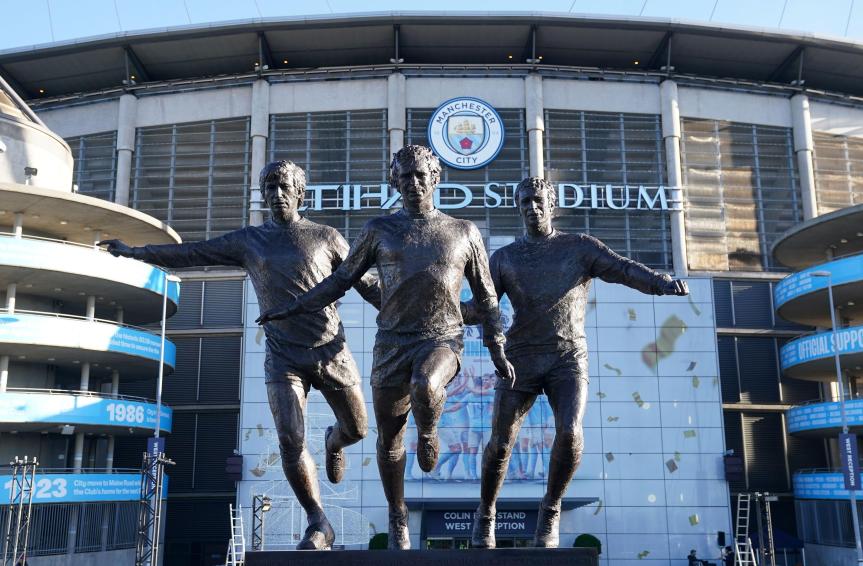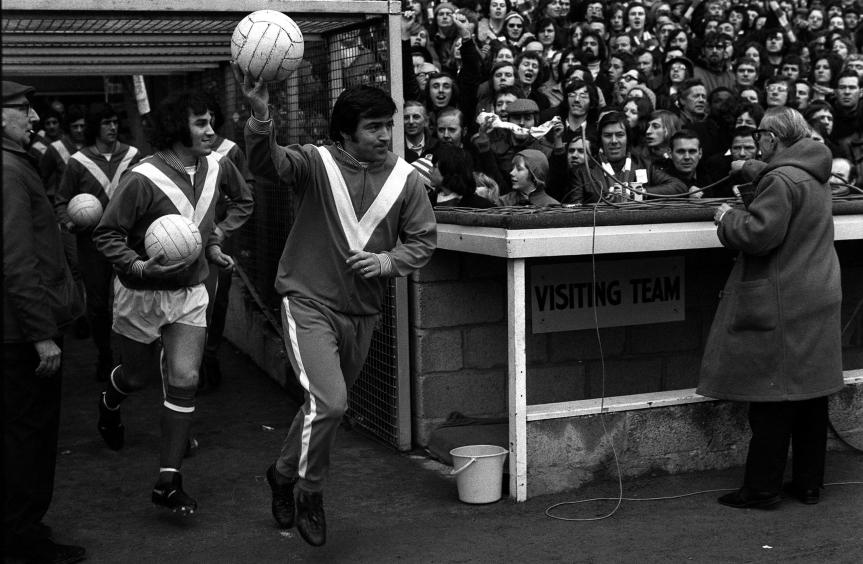THE Passing of Terry Venables has reminded the football world that he was arguably the most charismatic manager England have ever had. Many people consider the England side of 1996 was the best since the World Cup victory of 1966. They were probably the best team in the competition, beaten on penalties by Germany in a heartbreaking semi-final. Players like Gary Lineker and Gary Neville have praised his coaching abilities, with Lineker claiming he was the best and most innovative coach the country has produced. Venables also included elements of some of his biggest influences, including Tommy Docherty and Malcolm Allison.
Manchester City have unveiled a statue of the trio of players that inspired the club to a golden period of success in the 1960s – Colin Bell, Francis Lee and Mike Summerbee. The triumvirate were part of the team that won the Football League in 1968, the FA Cup in 1969 and the Football League Cup and European Cup-Winners’ Cup in 1970. Bell and Lee have both passed away, but Summerbee was present at the unveiling: “This is a special moment for me and my family,” he said. The statue, which mirrors the “trinity” statue at Old Trafford of Best, Charlton and Law, was created by David Williams-Ellis. The City lads won more trophies than their revered United counterparts by four pots to three!
The German football league has rekindled its interest in getting into bed with private equity, hoping that its members will eventually come round to agreeing a deal. According to media reports, the league has contacted five P/E firms: Advent, Blackstone, Bridgepoint, CVC and EQT. The 36 member clubs have already rejected two attempts to sell part of the competition’s media rights, but the aim of the league is to make the Bundesliga more competitive on the international stage. Despite being the best supported league, the Bundesliga has fallen behind the Premier League in recent years.
VAR continues to be a controversial tool that divides the football community. Now it is Wolverhampton Wanderers turn to claim injustice after their 3-2 defeat at Fulham, a game decided by an added time penalty by the home side’s Willian. Wolves manager Gary O’Neil claims his team have been victims of a string of poor decisions and that it has cost them seven points this season. Increasingly, and dependent on the final result of a VAR-affected game, managers believe VAR is no longer fit for purpose. Interestingly, the victors rarely complain about VAR!
Everton and their followers are clearly upset by the 10-point penalty they received due to their spending habits. However, there is a very obvious refusal to acknowledge the situation is not just about a £ 19.5 million breach. It is about excessive losses over a period of time. Fans held up banners calling the Premier League corrupt and a plane flew over Goodison Park bearing the same message, but the bear-pit that was promised was soon put down by a 3-0 victory for Manchester United. Is the 10-point penalty fair? It does seem harsh but there is a possibility this will be reduced. Much also depends on how Manchester City and Chelsea fare with their problems. Everton have to realise they have been badly run for a while and they have made some very poor decisions around expenditure and recruitment. It also does them no credit to merely blame the ownership and try and distance themselves from the people in the boardroom. Everton is an asset owned by Farhad Moshiri; the club does not belong to the fans in real terms. The heart and soul of a club may be created by the fans, but Moshiri bought the club and therefore, it was his. If this type of scenario is to change, then the status of football clubs has to be something other than a free market business. Maybe clubs should become charities, but then they won’t be able to run with the hounds. If the game wants to be all about “big business” and benefit from financial markets, then it also has to accept the downside of being a transferable asset class. Everton will get over this setback, but who’s next?


